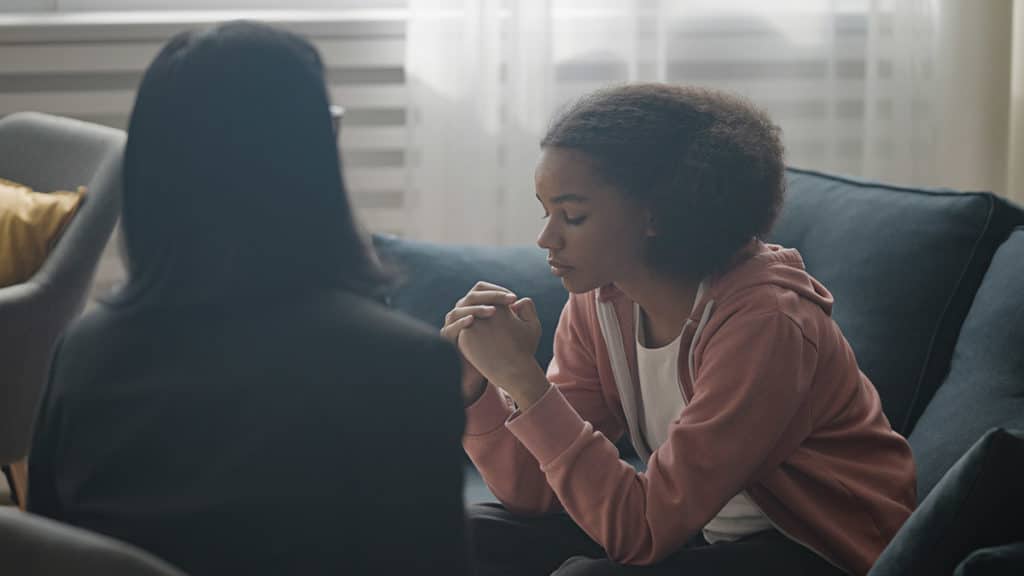Grief and loss are common aspects of the human experience. But this doesn’t make them easy to deal with. In fact, losing someone you love can be one of life’s most destabilizing experiences. That’s true for adults, teenagers, and children. However, the experience can be especially traumatic for younger people. To recover a sense of well-being, your loved one may need grief and loss therapy. Certain additional actions can also make it easier to process and work through grief.
What Are Grief and Loss?
Grief is a natural, expected response to losing someone or something you deeply care about. All people grieve in response to life-altering loss. However, not everyone grieves in the same way. In addition, not everyone is affected by grief to the same extent.
The experience of grief can be profoundly upsetting. Still, most people regroup over time and gradually return to a more balanced mental state. However, some people don’t recover from grief on their own. Instead, they experience problems such as:
- An inability to accept the reality of death
- Extreme emotional distress
- A pervasive sense of numbness
- Ongoing feelings of sadness or depression
More often than not, the source of this kind of lingering grief is the death of a close loved one.
Unresolved grief can play a role in the onset of several common forms of mental illness. The list of these illnesses includes major depression and various anxiety disorders. It also includes posttraumatic stress disorder, also known as PTSD.
Coping with Loss Through Grief and Loss Therapy
Grief and loss therapy is a form of trauma therapy. Like all trauma therapy, it helps participants overcome unresolved traumatic experiences. One treatment option specifically used for coping with loss is cognitive-behavioral therapy or CBT. In CBT, your teen learns how to:
- Recognize the impact of lingering grief on everyday thoughts, emotions, and actions
- Spot specific examples of negative effects in these three areas
- Undo the negative patterns associated with grief
- Create new patterns that counteract and lessen the impact of grief
Another potential option for grief and loss recovery is acceptance and commitment therapy, or ACT. The goal of ACT is to help your teen cope with the reality of loss. Treatment proceeds in stages. These stages begin with learning how to accept what’s happened. They end with a commitment to the process and defuse episodes of lingering grief.
Self-Care After Losing a Loved One
One of the common consequences of grieving is a declining level of attention to self-care. Unfortunately, a lack of adequate self-care can potentially worsen the effects of lingering grief. You can help your teen avoid this scenario by helping them do a variety of things.
Regular exercise is one of the most highly recommended forms of self-care for grieving teens. It’s also important to set up and maintain a healthy sleep routine. In addition, experts recommend helping your teen stay in touch with supportive friends and relatives. Both you and your teenager may also want to join formal grief support groups.
Find More Advice on Coping with Loss at Imagine Spokane
Want to learn more about supporting your child in the aftermath of losing a loved one? The experts at Imagine can help you better understand the potential effects of grief and loss. We can also help you determine if your child is at-risk for any related mental health issues.
Imagine is a premier mental health recovery resource for preteens and teenagers. Our trauma therapy program features customized treatment plans for grief and loss. This targeted approach supports a successful return to well-being after a serious loss. Call us today at 888.384.3143 for more information. You can also fill out our online message form.

